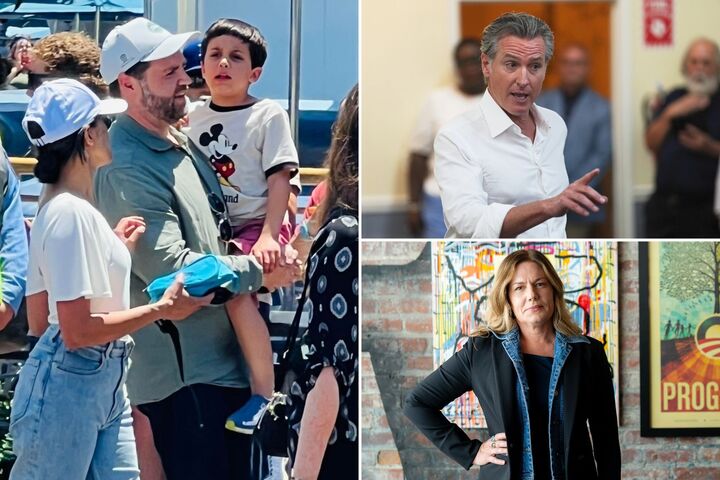California Governor Gavin Newsom recently made headlines for publicly criticizing Vice President JD Vance during a family outing at Disneyland. The incident occurred on Saturday, March 16, 2024, when Vance visited the amusement park in Anaheim with his wife, Usha, and their children. Usha had spent the previous day reading to children of active-duty military personnel at nearby Camp Pendleton.
In a pointed tweet, Newsom addressed Vance, saying, “Hope you enjoy your family time, @JDVance. The families you’re tearing apart certainly won’t.” His comment referred to recent Immigration and Customs Enforcement (ICE) operations in California, including a raid at the marijuana farm Glass House, where officials reportedly found 14 undocumented minors working under questionable conditions.
Newsom’s remarks have drawn attention as he prepares for a potential presidential campaign, having spent two days in South Carolina earlier that week. The governor’s criticism came alongside actions by other Democratic figures, including Jane Fleming Kleeb, a Democratic National Committee official. Kleeb confronted Vance at Disneyland, where she shouted questions about his stance on California and immigration, later boasting about the encounter on social media.
This incident highlights a rising trend among some Democratic leaders, who have increasingly engaged in public confrontations with Republican officials. The practice gained traction following comments made by Representative Maxine Waters in 2018, when she encouraged supporters to confront Trump administration officials in public spaces. Waters stated, “If you see anybody from that Cabinet in a restaurant, in a department store, at a gasoline station, you get out and you create a crowd.”
The political environment has become increasingly charged, with reports indicating that some Democratic lawmakers feel pressure from constituents to escalate their actions against the Trump administration. According to Axios, a lawmaker expressed that their base is demanding more aggressive responses, suggesting a shift towards a mentality where “civility isn’t working.”
While the tensions are palpable, it is essential to note that Newsom did not explicitly call for violence. Nonetheless, his actions and rhetoric reflect a broader trend of politicizing family spaces and personal outings. Critics argue that such behavior disregards the boundaries traditionally respected in political discourse.
Additionally, Newsom’s record on family-related issues has raised eyebrows. Last year, he signed a bill that prevents schools from notifying parents about their children’s decisions to socially transition their gender identity. His administration also faced scrutiny for prolonged school closures during the COVID-19 pandemic, which contributed to significant learning losses and mental health issues among students.
The recent ICE operation at Glass House, where protests erupted, has also led to a child labor investigation. This situation raises important questions about the welfare of minors involved in labor, particularly in sectors like agriculture. Critics argue that the focus should be on protecting vulnerable children rather than using their plight as a political tool.
As political rhetoric intensifies, incidents like the confrontation at Disneyland reveal the complexities of navigating personal and public life in an era of heightened political division. With both parties increasingly engaging in aggressive tactics, the implications for civil discourse and family privacy remain a pressing concern.
